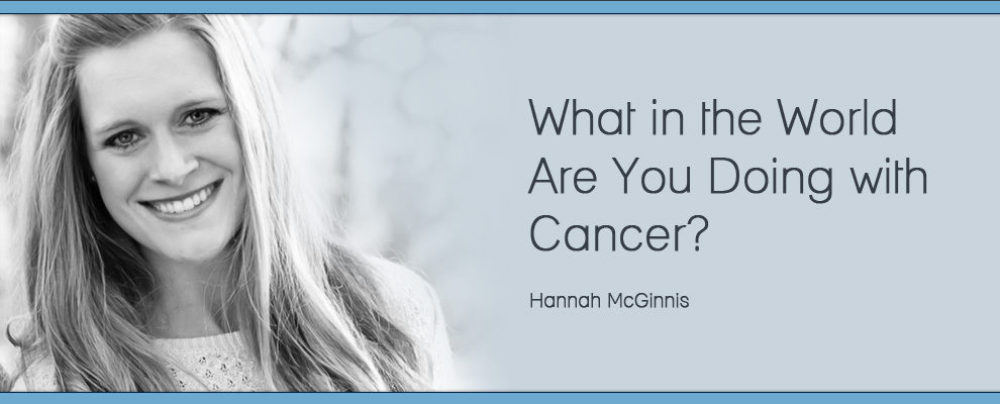As promised in my last post about some of the more unhelpful (though semi-entertaining) things people said to me during cancer, this week I wanted to share what was conversely very helpful, but as I started writing and compiling everything, the post was becoming too long. So, this is the first in a short installment of posts on being present in the struggle.
The idea of “presence,” of people simply being with others in the struggle and alongside the struggle, has come up in many of the readings for my graduate courses both last semester and this spring semester. (Sidenote: by “presence,” I don’t mean “presents”…although the chemo day care packages my aunts sent me were pretty great alternatives to people tritely saying the wrong thing!)
Again and again, I have read articles, books, and blogs about the idea of being present with others in their struggles, and this idea has resonated deeply with me. I wrote about it in my book when I went on and on about how amazed I was at the goodness in people, people who would skip class, blow off a date, or brave rush hour traffic of Chicago to simply be with me–going with me to chemotherapy treatments, just watching a movie with me in my bedroom, and even to this day accompanying me for my annual checkups.
Wheaton tweeted a link to a New York Times op-ed in the fall titled “The Art of Presence” that was written by David Brooks about the Woodiwiss family, and it’s a great read about the importance of presence amidst suffering. Dr. Ashley Woodiwiss was a political science professor at Wheaton when I was in undergrad, and the article is based on the aftermath of the death of his daughter and severe injury to another daughter a few years later, and I’d encourage you to read it.
The first thing they note is to be there with others in their suffering, and I agree. People were so great in my diagnosis and journey, and though the support waned after the initial shock of the diagnosis, many were still present, assuring me they were with me, even if they were hundreds of miles away but consistently texting that they were praying for and thinking about me. The Woodiwisses note that it was disorienting when some they expected to be present simply weren’t, and I felt that, too. One group that had been really important in my life was almost completely silent, and I’m not sure if they were silent because they wanted to give me space, didn’t know what to say, or what, but it left me awkwardly wondering first of all if they even knew about the diagnosis or not and later if they just didn’t care.
Two other things mentioned in the article were great. The Woodiwisses noted the contrast between firefighters and builders: “Firefighters drop everything and arrive at the moment of crisis. Builders are there for years and years, walking alongside as the victims live out in the world.” Finally, I loved that they advise against saying everything will turn out right in the end or trying to make sense of what happens in suffering and loss. It’s only natural to try and do so, and those thoughts will come if my experience in struggle isn’t unique (and I don’t think it is), but the Woodiwisses feel that, “Theology is a grounding in ultimate hope, not a formula book to explain away each individual event.” It’s true that Paul promises that all things work together for the good of those who love God (Romans 8:28 with an emphasis on God’s definition of good, not “health, wealth, and prosperity”), and while that’s an important promise to hold onto, many believers already know that and don’t need to be tritely reminded of it.
I quoted from Parker Palmer’s Let Your Life Speak a few posts back, and he wrote something else in that book that stuck with me on this idea of presence. He writes, “One of the hardest things we must do sometimes is to be present to another’s pain without trying to ‘fix’ it, to simply stand respectfully at the edge of that person’s mystery and misery.”
I think that’s huge: not trying to explain the struggle away, not trying to fix it, and definitely not ignoring it. Instead, simply entering into and walking alongside another person in the struggle–and even acknowledging that we don’t fully understand, but we are with that person–that is being present in the struggle (or part 1, anyway).
On Christ the solid Rock I stand,
Hannah

Pingback: Present in the Struggle, Part 2 – Hannah McGinnis
Pingback: Confession: I Am Still Vulnerable to Loss – Hannah McGinnis